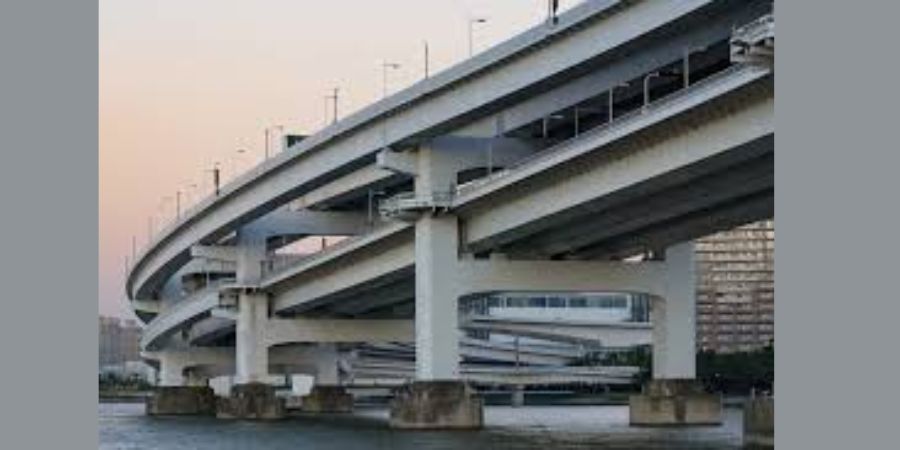Concrete may appear resilient, but it has an inherent flaw: its susceptibility to rust. The steel rebar that serves as concrete’s supportive structure develops rust over time. After rebar develops rust, the concrete structure will begin to crack and weaken. This is especially troublesome in bridges as they face continuous moisture, salt, and environmental change. In the U.S., almost one-third of bridges are structurally deficient and require repair or replacement. The cost of repairs across the nation may exceed $400 billion in less than ten years. With challenges increasing, bridge durability depends on innovations like the Allium Engineering stainless solution, which aims to provide better corrosion resistance and longevity.
Why Current Solutions are Not Enough
Engineers have attempted countless methods to combat the prevalence of rust. Some will cover the rebar in epoxy. Other times, engineers will increase the amount of concrete to slow moisture absorption. Engineering solutions like these perform with good success, but only temporarily. Eventually, regardless of the fix, rust prevails. The only permanent solution has been to use stainless-steel rebar, which will last for many decades without rust. The downside is it is five times the cost of carbon steel and not affordable for large-scale infrastructure projects. This ongoing struggle has led to renewed interest in cost-effective corrosion-resistant rebar solution for aging bridges.
An Improved Alternative
Allium Engineering, a startup led by Steven Jepeal and Samuel McAlpine, offers a better alternative. Their idea is straightforward: coat ordinary rebar in an ultrathin, cost-effective layer of stainless steel. This hybrid solution can extend the life of a bridge from thirty years to almost a hundred, all without the expense of complete stainless steel rebar. The Allium Engineering stainless solution brings both strength and corrosion resistance, improving bridge durability significantly.
“As long as we get complete surface coverage, this ultrathin layer can last for hundreds or thousands of years without ever corroding,” McAlpine, Allium’s CTO, remarked.
Allium’s improved rebar technology has already been utilized in real-world projects. The stainless-steel clad rebar from Allium Engineering for bridges has been installed in a bridge deck replacement project on U.S. Highway 101 in California, and a subsequent installation on Interstate 91 in Massachusetts is in the works. Allium has also cooperated in the construction of a commercial boatyard in Key West, Florida.
Balancing Cost and Durability
In situations with high-use bridges, engineers may then illustrate a rationale for the increased costs associated with stainless-steel rebar in that the costs associated with shutting down the primary route for repairs can be an even larger burden. Most bridges, on the other hand, use epoxy-coated rebar because it is more economical; however, it has drawbacks, such as requiring special storage and when welding, post patching.
Allium Engineering’s stainless solution hopes to completely replace epoxy-coated rebar. The company said it is looking for something in the same price range and may even go below that. Jepeal said their product also reduces handling costs and eliminating the need to spend extra on concrete to protect the rebar from corrosion. This can reduce cement use up to 20%, enhancing sustainability of bridge construction. With such innovation, experts believe how Allium’s stainless solution could extend bridge life to 100 years may soon become reality.
Engineering the Future of Infrastructure
Allium’s approach entails encapsulating sizable steel billets- each weighing approximately 7,000 pounds- in stainless steel. These billets are then formed into thinner bars while preserving a 0.2 mm stainless-steel shield which offers infinite corrosion resistance.
By applying the method to existing steel mills, Allium is able to enhance cost-effectiveness and scalability of the product: Jepeal said, “We can do something that’s cheaper, more controllable and easier to scale.” The Allium Engineering stainless solution ensures durability across environments, improving bridge durability and performance for decades to come.
A Bridge to a Longer Future
To the extent that Allium’s strategy works, it could be transformational. Bridges that can last longer lead to fewer bridge closures, less maintenance spending and a decreased environmental footprint. The stainless-steel clad rebar from Allium Engineering for bridges symbolizes progress in combining cost efficiency and corrosion resistance. What might exhibit as a thin layer of steel today may soon be the shield protecting America’s bridges for a century, proving that the Allium Engineering stainless solution offers a future-ready and cost-effective corrosion-resistant rebar solution for aging bridges.



